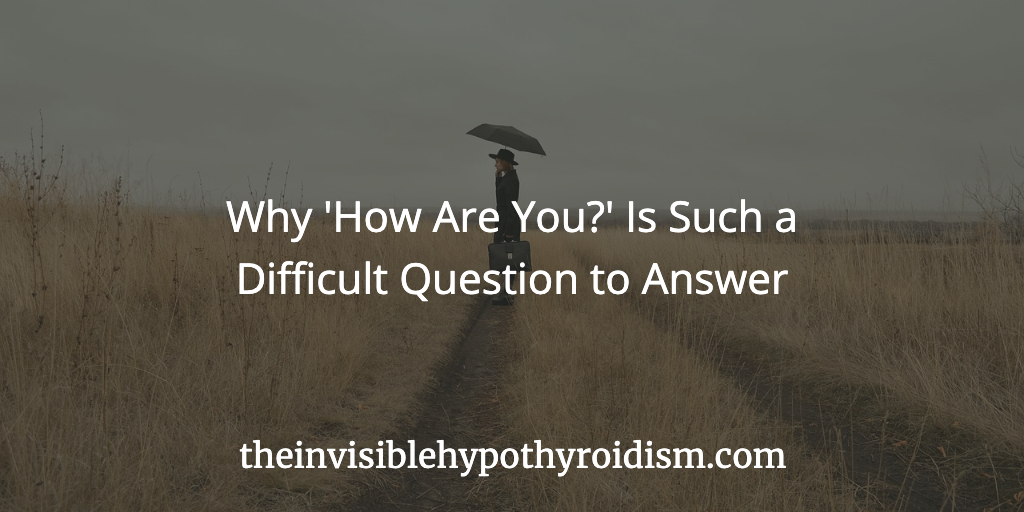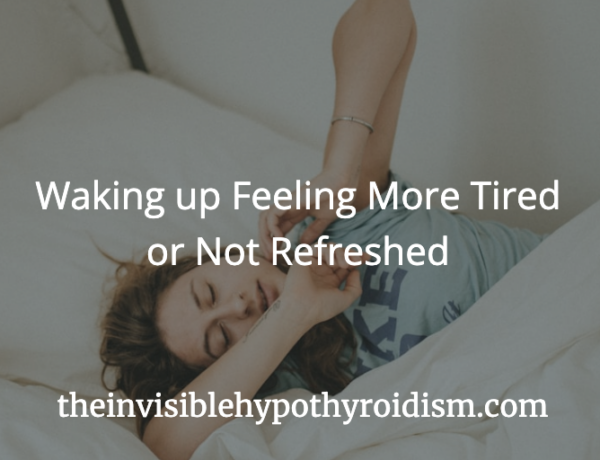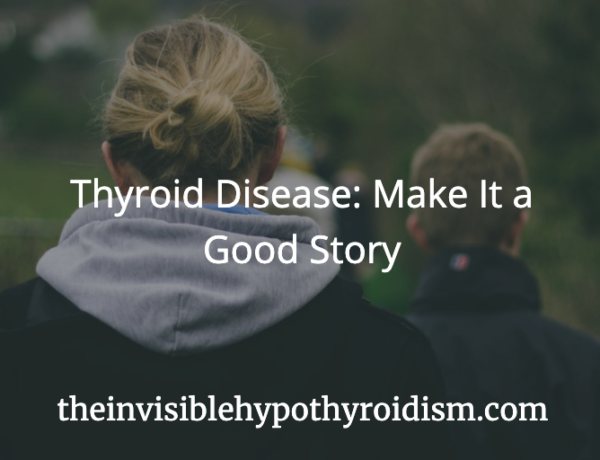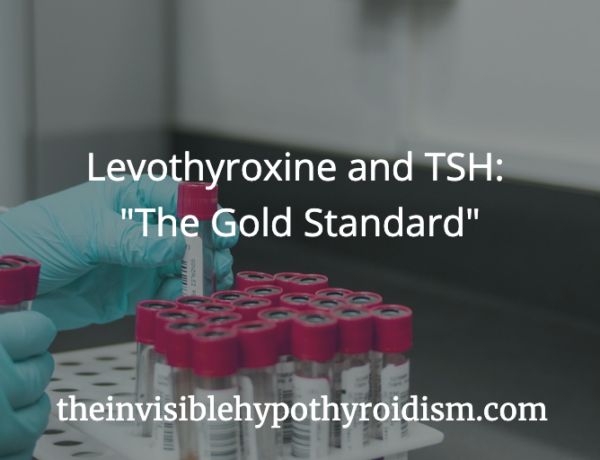TW: Mental Health, Depression
Please note that I wrote this article when I was still quite unwell with hypothyroidism and Hashimoto’s. I’m since doing a lot better and my quality of life has improved hugely, but I know many others will still relate to this article as they go through the ups and downs of living with thyroid disease.
Some may think this article ‘wallows’, ‘moans’ or focuses on the negatives, but I was in a dark place mentally, depressed and at points, suicidal. It is important to recognise all feelings and states. Everyone’s journey is different yet valid. It is a reflection of where I was at the time of writing.
“How are you?”
A question that seems simple enough to answer. It demonstrates that someone cares. It should be a nice thing to ask someone.
But I never know how to answer.
It’s a question I dread. If I’m asked in person, I sometimes smile and say, “Yeah, I’m fine,” and other times I just shrug my shoulders, not wanting to answer. But also not knowing what to say.
When someone sends me a text asking me how I am, I ignore it for a while. Anxiety fills the pit of my stomach as I try to think of some way to answer it. I leave it unread until I have an answer formed and ready to reply with, but I dread responding. What if someone prods for more information?
How do you answer that question when you can’t make sense of how you are yourself? How do you answer it when most days are bad days and it’s a struggle just to make it through? I worry that if I always say I’m not doing too great, it desensitises what I’m saying and people will think I’m being overdramatic. But it’s true, most days lately are not-so-good days and its a struggle.
Some days it is just easier to say I’m fine and nod. Other days I can’t bring myself to lie because I don’t have the physical or mental energy to. I say I’m struggling, in pain or that I don’t know how to answer it. And people always respond with, “I hope you feel better soon.”
Again, it’s supposed to be nice and reassuring, but I feel more upset knowing that I won’t be all better soon. The whole conversation reinforces my concerns.
Hearing, “How are you?” reminds me that I’m struggling and when I don’t know how to answer, I feel pathetic. I don’t know whether to be honest with you or to “put on a brave face” when you ask me. I often want to scream out that I woke up this morning disappointed that I woke up. I want to tell you that every inch of me hurts and I don’t really know why. I want to tell you that I feel let down by the medical system.
But I also don’t want to scare you or push you away with the negativity I give off when I’m struggling, because most days, honestly, wouldn’t be met with a positive answer to, “How are you?” I live with several chronic illnesses and health conditions, as well as mental health conditions. I’m, alive I guess. I’m not living, but I’m alive. I’m surviving, not thriving.
I appreciate you caring enough to ask, so I truly am sorry if I don’t know how to reply to, what should be, a sympathetic and simple question. I don’t always know how I’m doing myself, and that’s even harder to explain to someone else.
Many people living with mental and physical health conditions won’t mind being asked, “How are you?” but in case someone else out there feels the same as me, I want them to realise that others dread that question, too. Or aren’t sure how to answer.
Do you ever feel conflicted about how to answer this question?
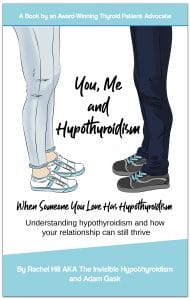
You, Me and Hypothyroidism: When Someone You Love Has Hypothyroidism, a book for those who know someone with hypothyroidism. Understand how you can best support them.

